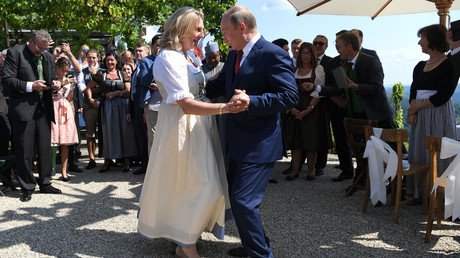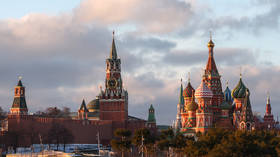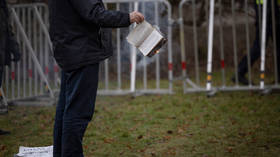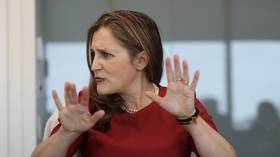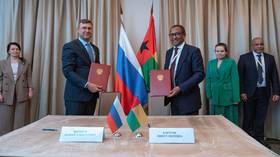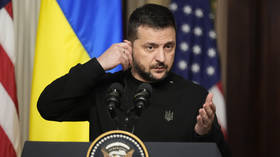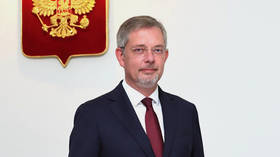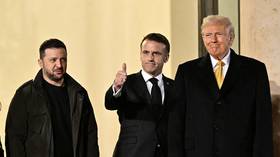Former Austrian FM faces death threats over Russia ties
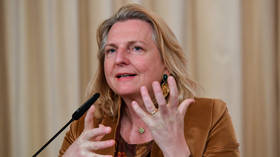
Karin Kneissl has had to leave Austria due to fears for her life, she told the Washington Post on Tuesday. The former foreign minister said she continued receiving death threats even after resigning from the board of the Russian energy company Rosneft, amid the conflict in Ukraine.
The revelation came as part of a Post story which claimed that Russian influence “came to permeate” the Alpine nation. Kneissl told the outlet’s reporters via WhatsApp she was “not giving interviews” any more and that she had emigrated from Austria because of death threats.
After serving as Austria’s foreign minister between 2017 and 2019, Kneissl was nominated for the position at Rosneft in March 2021, becoming the first woman on the company’s board. She was also a contributor at RT, writing opinion pieces on Russia’s relations with the West, as well as other issues.
After the EU joined the US in imposing sanctions against Moscow over the conflict in Ukraine, however, Kneissl was forced to resign from the Rosneft board. The day before she did so, the European Parliament passed a resolution calling for personal sanctions against European politicians still holding ties to Russian businesses, with Kneissl and Germany’s former Chancellor Gerhard Schroeder mentioned by name. Schroeder, who was also on the Rosneft board, then resigned as well.
The Post, owned by Amazon magnate Jeff Bezos, mainly focused on Kneissl’s 2018 wedding, which made international headlines after Russian President Vladimir Putin attended the event and danced with her in front of the cameras. The outlet also accused “the far-right Freedom Party” of Austria (FPO) of having “particularly warm ties to the Kremlin,” in part because it sent several members on an official trip to Crimea in 2017, three years after its reunification with Russia.
The FPO has always denied any ties to the government in Moscow. The right-wing populists turned national conservatives rose to political prominence under Joerg Haider, who died in a 2008 car crash. Led by Hans-Christian Strache, the FPO became the junior partner in the ruling coalition in 2017, but was turfed out in May 2019 after the “Ibiza affair.”
The biggest scandal in Austria’s modern political history came at the height of the “Russiagate” hysteria in the US and featured a secretly recorded video suggesting Strache and another FPO official Johann Gudenus had plotted corrupt deals with the daughter of a “Russian oligarch” at the Spanish resort. It made no difference that the Kremlin had nothing to do with any of it: the woman turned out to be an impostor, the entire set-up was orchestrated by a Viennese lawyer, and both Strache and Gudenus denied any wrongdoing.
